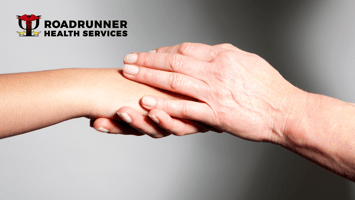As correctional healthcare continues to evolve, providing comprehensive services to individuals in...
Bridging Gaps: Community Health through Correctional Facilities
Correctional healthcare is more than just a service—it’s a bridge between communities. At Roadrunner Health Services (RHS), we know that high-quality, compassionate care inside correctional facilities has a ripple effect to the communities beyond. By focusing on continuity of care, reducing recidivism, and hiring local staff, we’re not just meeting healthcare requirements—we’re working to strengthen the Southwest.
Correctional Healthcare’s Influence on Community Health
So, how does correctional healthcare impact community health? It's all about the patient journey. The individuals we treat in correctional facilities will rejoin our communities, bringing their health challenges along. If they don’t receive the care they need during incarceration, issues like untreated chronic illnesses, mental health struggles, and addiction can get worse and worse. Conditions that were made worse in prison due to negligence will then translate into things like surging emergency room visits, escalating healthcare costs for our communities, and posing serious public health threats. Investing in correctional healthcare isn't just the right thing to do; it’s an essential step toward healthier, safer communities for everyone.
RHS provides critical services, including mental health treatment and suicide prevention resources, to ensure that incarcerated individuals receive the care they need before reentering society. When people leave correctional facilities healthier—both physically and mentally—they have better tools to reintegrate successfully, reducing the burden on public health systems.
The Impact of Reducing Recidivism on Public Health
Recidivism—the cycle of individuals returning to incarceration—leaves a significant mark on community health. When individuals are in and out of correctional facilities, their medical treatments and mental health are disrupted. This also creates instability in families and neighborhoods when individuals are unable to reintegrate and fully take root in their communities.
By providing proper medical care, managing chronic conditions, and offering mental health support, RHS helps break this cycle. This means fewer people returning to the justice system and more individuals successfully reintegrating into society—leading to safer, healthier communities across Albuquerque and the Southwest.
The Importance of Local Nurses and Staff in Correctional Care
At RHS, we prioritize hiring local nurses and healthcare professionals who understand the communities they serve. Our healthcare professionals live in the same communities as the individuals they treat, giving them unique insights into the challenges and resources available in the region.
Having a dedicated team of local staff is our way of designing care that encourages patient's trust. In correctional settings, where healthcare is often met with skepticism, having common ground can make all the difference. When patients trust their providers, they are more likely to seek medical attention, keep to treatment plans, and communicate health concerns—all of which contribute to better outcomes inside and outside correctional facilities.
Continuity of Care: A Lifeline for Reintegration
Continuity of care is the backbone of effective correctional healthcare. In a correctional setting, transitions are everything. Providers should ensure that medical treatments, mental health services, and substance use programs continue seamlessly from the facility into the community.
Let's take a diabetes diagnosis, for example. An individual with diabetes who receives proper medication and education while incarcerated should not have to start from zero upon release. Similarly, someone receiving mental health treatment inside a facility should have clear steps laid out for them to help them continue therapy and medication management after release. Without these transitions in place, individuals can fall through the cracks, leading to untreated illnesses, increased hospitalizations, and a higher likelihood of returning to jail.
RHS has identified many ways to bridge these gaps by coordinating care plans that extend beyond incarceration. Partnering with community clinics, or discharge planning that connects individuals with resources before they leave are both pathways to continuous and community-affirming care.
More Than a Healthcare Provider—A Community Partner
At RHS, we don’t just provide healthcare inside correctional facilities—we are committed to strengthening the communities where we live and work. Our mission extends beyond meeting state and federal healthcare standards; we aim to create a lasting, positive impact on the Southwest.
We believe that everyone, regardless of their circumstances, deserves access to compassionate, high-quality medical care. When you do correctional healthcare well, you support public health in a way that benefits everyone. And at Roadrunner Health Services, we are proud to be part of that mission.

%20and%20(MAT)%20Program%20Blog%20Cover%20-Apr-15-2024-09-10-58-6848-AM.png?height=200&name=(SUDs)%20and%20(MAT)%20Program%20Blog%20Cover%20-Apr-15-2024-09-10-58-6848-AM.png)
.png?height=200&name=Blog%20feature%20press%20release%20(1).png)
